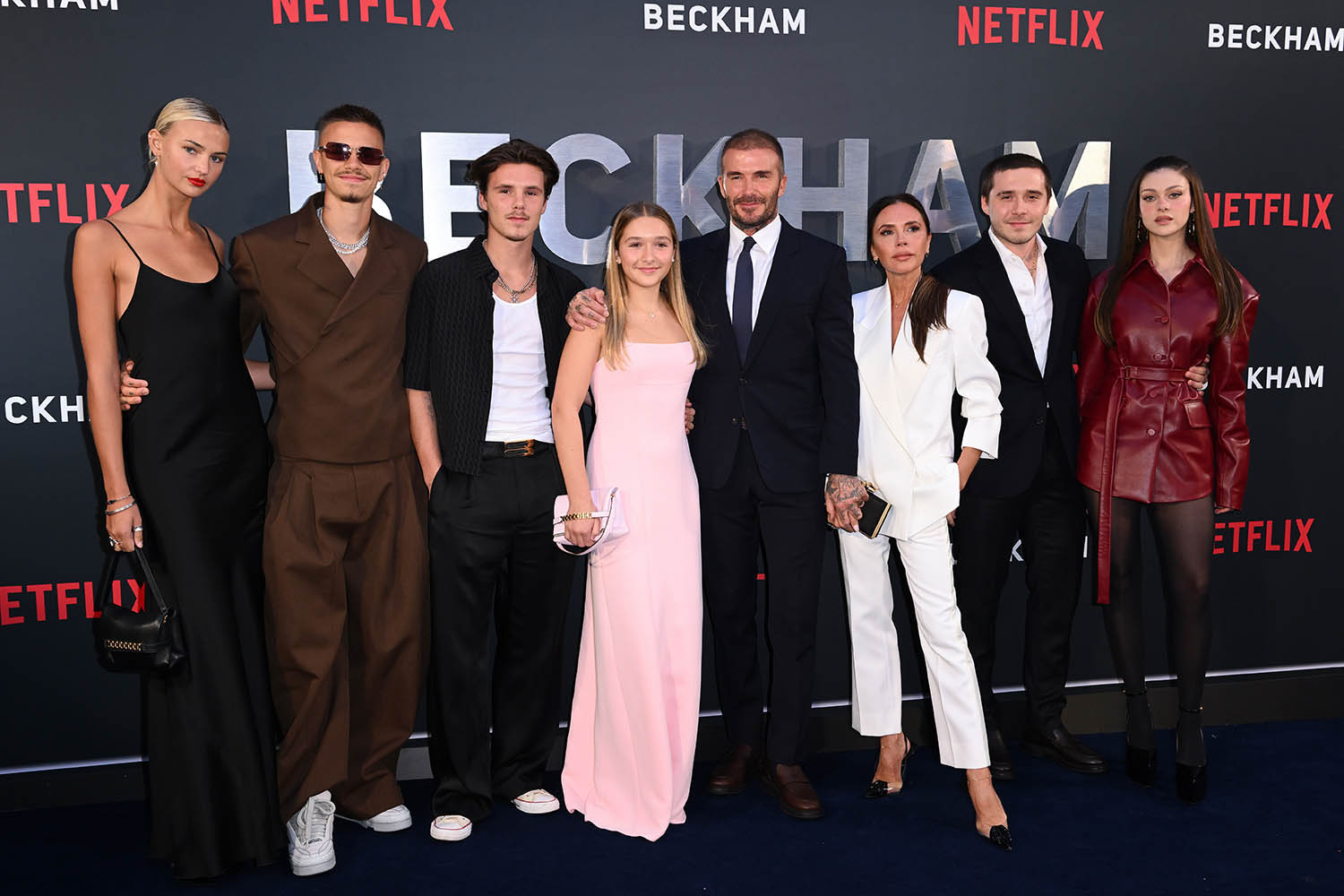An alleged rift between David and Victoria Beckham’s eldest son Brooklyn and the rest of the family has trained a spotlight on the concept of “forensic fandom”.
Stories of a family feud, which were fuelled by social media sleuths finding clues in the celebrity clan’s online presence, emerged when fans spotted unusual activity on Instagram, and their findings were then reported in the showbusiness press.
David and Victoria are active Instagram posters. Their sons Brooklyn, Romeo and Cruz all have large social media presences, while daughter Harper has a dedicated Instagram hashtag, #HarperSeven.
Long-term followers watch the family’s posts closely and, during recent celebrations for David’s 50th birthday, they noticed anomalies.
Amanda Harbour is one such fan detective, based in the US and posting on TikTok as @amandachristine_1, where her gossip-focused videos have acquired more than 200,000 followers. When she saw birthday photos, she noted that Brooklyn and his wife, Nicola Peltz, weren’t in them.
The family didn’t acknowledge the couple’s absence, and in a break from usual patterns Brooklyn did not publicly wish David a happy birthday or Victoria a happy Mother’s Day. Harbour’s videos analysed these clues – gaining over 1.2m views on one.
‘There is a danger of going too far. You have to be careful’
‘There is a danger of going too far. You have to be careful’
Amanda Harbour, fan sleuth
Posts such as these have proved catnip for the media. “This is just free content, created by the labour of fans,” said Rafal Zaborowski, senior lecturer in digital culture at King’s College London. “Fandom has never been just about watching and admiring,” he said, adding that social media made it easier to join in.
Hayley Cocker, senior lecturer at Lancaster University’s Management School and an expert in fan behaviour on social media, says followers assume the role of a detective and “engage in what's known as ‘forensic fandom’ – a behaviour whereby they meticulously search for clues, interpret evidence and construct theories to fill perceived gaps in a celebrity’s narrative”. This can involve following the star’s wider network, monitoring follower lists and checking likes, comments and who’s tagged whom. There’s now an online ecosystem of social media accounts such as Harbour’s sharing celebrity gossip, “tea” channels on YouTube, and dedicated gossip forums.
There is a danger of going too far. “You do have to be careful with the way you portray things,” said Harbour. “There are times people get it wrong.” She mentions the princess of Wales, and conspiracy theories about her absence from public life that proliferated online, forcing her to share her cancer diagnosis.
Celebrities are changing their online behaviour in response. Some delete comments about their private lives. Others turn off comments altogether, as actor Blake Lively did after fan commentary on her court case against Justin Baldoni following their appearance together in the film This Ends With Us. This does come with risks, Cocker said, because fans can feel betrayed: “This fuels further gossip and speculation.” Cue more stories, and less truth.
Newsletters
Choose the newsletters you want to receive
View more
For information about how The Observer protects your data, read our Privacy Policy
Photograph by Karwai Tang/Getty



